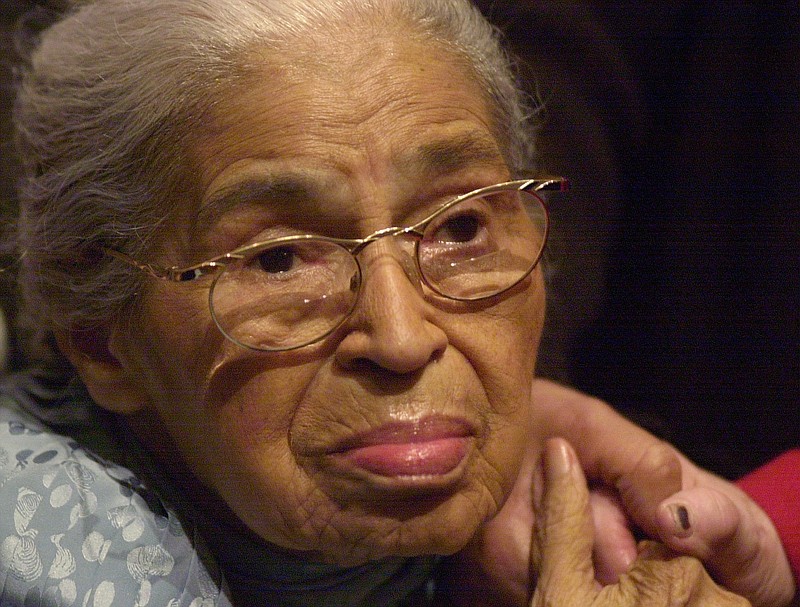Contrary to lore, Rosa Parks was not the first African-American arrested in Montgomery, Ala., for refusing to surrender her bus seat to a white passenger.
What earned Parks a place in the history books wasn't her resolve alone - others had broken that same Jim Crow law before. What made her different was that she also happened to fit the description of someone a bus boycott could successfully be constructed around. Civil Rights leaders had been waiting for someone like Parks to come along.
So what made her so special? Here's organizer E.D. Nixon:
"When Rosa Parks was arrested, I thought, "This is it!" Because she's morally clean, she's reliable, nobody had nothing on her, she had the courage of her convictions."
Or, as Dr. Martin Luther King said, "nobody can doubt the height of her character."
Parks was a prime example of respectability politics, a school of activism in which the supporters of a marginalized cause advocate it by highlighting its compatibility with the mainstream.
Instead of shaking their fists in the air, shouting at the tops of their lungs or setting fire to buildings, effective practitioners of respectability have advanced their missions by building consensus via relatability. Key to their successes has been a knack for selecting sympathetic figures as the focal points of their causes - like Rosa Parks.
Nowadays, respectability politics has fallen out of vogue. Its detractors say it's a strategy of complacency. Surveying how today's generation of protesters - especially the ones who've claimed the civil rights banner - have managed their affairs, it's clear they prefer other methods.
Taking this trend head-on, Harvard law professor Randall Kennedy makes "a progressive defense of respectability politics" in his recent Harper's Magazine essay "Lifting as We Climb."
Here's how he squares respectability against recent events:
Champions of respectability "preferred to rally attention around Tamir Rice, the black 12-year-old who was playing with a toy gun in a park when he was precipitously shot dead by a policeman in Cleveland, rather than a figure like Michael Brown," because "they were concerned that Brown's participation in a robbery before the shooting and the ambiguous circumstances surrounding his encounter with police would muddy the issue."
This isn't to say that they weren't upset by Brown's death. It's that they saw Rice as the preferred case to rally around since he was a clear victim and the "likeliest to elicit the greatest sympathy from the general public."
The truest victory of protest is to influence emotions and worldviews since those are the places where sustained change comes from. Sure, you can threaten someone into capitulation, but few bonds of brotherhood have ever been born that way. Case in point: Did the Ferguson, Mo., riots change minds? Not many. If anything, those events served as validations for preconceived notions.
For his stance on respectability, Kennedy is the object of much fury on the Left. But he's obviously on to something, and that something can be applied to both sides of the political spectrum.
We conservatives often cast ourselves as a marginalized people whose world is under constant assault. In many ways this is true, but we're also terrible at identifying effective characters to be the faces for our various causes. Kentucky clerk Kim Davis need not embody the struggle for religious liberties. The fight against an ever-encroaching federal government can find a better spokesman than cattle-rancher Cliven Bundy. And firebrand Ann Coulter should not have a prominent voice on immigration.
If the future of conservatism rests on an ability to change hearts and minds, we need to be better at picking approachable focal points who can help make that happen.
Contact David Allen Martin at davidallenmartin423@gmail.com and follow him on Twitter @DMart423.
